Have you noticed your fuel gauge dropping faster than usual, leaving you wondering “why is my car burning so much gas?” It’s a frustrating and costly problem many drivers face, often signaling underlying issues that, once identified, can be effectively addressed. Understanding the root causes of poor fuel economy is the first step toward saving money at the pump and maintaining your vehicle’s health.
Excessive car fuel consumption often stems from a combination of mechanical issues, inefficient driving habits, or environmental factors. Addressing these common culprits, from maintaining proper tire pressure to adopting smoother driving techniques, can significantly improve your vehicle’s miles per gallon (MPG) and overall efficiency.
Leveraging extensive analysis of available data and established patterns, this expert-curated guide, updated for 2026, draws from a comprehensive analysis of common causes to provide actionable solutions. We’ll unpack proven approaches and critical insights to help you effectively diagnose and fix why your car is burning so much gas, ensuring you take control of your vehicle’s fuel efficiency.
Key Facts
- Spark Plug Impact: Misfiring due to bad spark plugs can decrease fuel economy by up to 30%, as highlighted by research from RepairPal.
- Tire Pressure Benefits: Maintaining proper tire pressure can improve fuel economy by an average of 0.6% to 3%, according to aggregated data.
- Idling Waste: Idling for 15 minutes can consume approximately a quarter-gallon of gas, as noted by various automotive sources.
- A/C Efficiency Reduction: Blasting the air conditioning can reduce fuel efficiency by 20% to 50%, impacting your overall MPG.
- Speeding Costs: Fuel efficiency decreases rapidly above 50 mph, with every 5 mph over 50 mph potentially costing an additional 18 cents per gallon, according to fueleconomy.gov.
Why Your Car is Guzzling Gas: An Overview of Key Culprits (Updated for February 2026)
Excessive car fuel consumption often stems from mechanical issues, inefficient driving habits, or environmental factors. Addressing these can significantly improve MPG. When your car suddenly starts using more gas than usual, it can be perplexing. The good news is that many of these issues are common and identifiable. This guide categorizes the main reasons for excessive fuel consumption, preparing you for a detailed breakdown of each. These categories are derived from common issues identified by automotive experts and consumer reports from reputable sources like CarParts.com, RepairPal, fueleconomy.gov, and AAA.com.

Quick Fact: Did you know that fixing just a few common issues can significantly boost your car’s MPG?
The primary culprits can be broadly grouped into:
- Mechanical Issues: Problems with your car’s engine, sensors, or other components.
- Driving Habits: How you operate your vehicle on a daily basis.
- Environmental & External Factors: Conditions outside your control or specific usage patterns.
How We Identified These Common Reasons
The insights and solutions presented in this guide are not guesswork. This information is synthesized from multiple authoritative automotive sources, including CarParts.com, RepairPal, fueleconomy.gov, and AAA.com. Our methodology involved a comprehensive analysis of common causes reported by these experts, allowing us to compile a reliable and actionable list of factors impacting fuel consumption.
Mechanical Issues: The Engine & Components That Burn Excess Fuel
Mechanical problems like faulty sensors, worn spark plugs, or low tire pressure are common culprits behind poor car fuel economy, often requiring specific repairs. Your car is a complex machine, and when one component isn’t performing optimally, it can have a ripple effect, particularly on fuel consumption. These mechanical failures force your engine to work harder or burn fuel inefficiently, leading to a noticeable drop in MPG. For complex mechanical issues, consulting a professional mechanic is often recommended to diagnose and address underlying problems, as advised by RepairPal and CarParts.com.
Pro Tip: Many of these issues can be detected early with regular vehicle inspections and diagnostic scans.
Dirty Oxygen Sensors
Dirty or faulty oxygen sensors send incorrect data, causing your engine to use more fuel than necessary due to an imbalanced air-to-fuel ratio. Oxygen sensors play a crucial role in your vehicle’s engine management system. They monitor the amount of oxygen in the exhaust gases, providing vital data to the car’s computer. This information is then used to adjust the air-to-fuel ratio for optimal combustion. If these sensors are dirty or faulty, they send incorrect readings, causing the fuel injectors to deliver more fuel than necessary. This leads to an overly rich mixture and, consequently, poor fuel economy, as highlighted by CarParts.com.
Think of it like a chef adding too much of an ingredient because their measuring cup is broken – the engine gets too much fuel!
Symptoms of Dirty Oxygen Sensors:
* Reduced fuel efficiency
* Check Engine Light illumination
* Rough idle or hesitation
* Strong sulfur smell from the exhaust
Solution:
If an oxygen sensor is confirmed to be faulty, it will need to be replaced by a qualified mechanic.
Spark Plug Issues
Worn or faulty spark plugs cause misfires, leading to incomplete fuel combustion and a potential fuel economy decrease of up to 30%. Spark plugs are essential for igniting the air-fuel mixture in your engine’s combustion chambers. When spark plugs are worn, dirty, or faulty, they can cause misfires, meaning the fuel doesn’t combust efficiently. This wastes fuel and engine power, significantly reducing fuel economy. Research from RepairPal indicates that misfiring due to bad spark plugs can decrease fuel economy by up to 30%.
Can you afford to lose 30% of your fuel efficiency? That’s what bad spark plugs could be costing you!
Symptoms of Spark Plug Issues:
* Engine misfires or rough idling
* Difficulty starting the car
* Reduced acceleration or power
* Decreased fuel economy
Solution:
Regularly inspect and replace spark plugs according to your vehicle’s maintenance schedule, typically every 30,000 to 100,000 miles, depending on the type.
Dirty Mass Airflow (MAF) Sensor
A dirty or defective MAF sensor provides inaccurate air intake readings, causing incorrect fuel injection and decreased fuel efficiency, often with symptoms like hesitation or rough idling. The MAF sensor measures the amount of air entering the engine, a critical piece of data for the car’s computer to calculate the correct air-to-fuel ratio. A dirty or defective MAF sensor can provide inaccurate readings, leading to an incorrect amount of fuel being injected and, as a result, decreased fuel efficiency. This issue can also manifest as symptoms such as hesitation, rough idling, or even black exhaust smoke, according to Joe Bowman Auto Plaza. It’s important to note that cleaning a MAF sensor is generally not recommended due to the delicate nature of its components, as advised by CarParts.com.
If your car feels like it’s ‘hesitating’ or you see black smoke, your MAF sensor might be the culprit.
Symptoms of a Dirty MAF Sensor:
* Engine hesitation or stumbling during acceleration
* Rough idling
* Stalling shortly after starting
* Black smoke from the exhaust
* Check Engine Light
Solution:
If the MAF sensor is faulty, it should be replaced. If a professional diagnoses it as merely dirty, they may attempt a specialized cleaning, though replacement is often safer due to its delicate nature.
Low Tire Pressure
Underinflated tires increase rolling resistance, forcing your engine to work harder and consume more fuel; maintaining proper pressure can improve fuel economy by 0.6% to 3%. This is a surprisingly common and easily overlooked cause of poor fuel economy. Underinflated tires have a larger contact patch with the road, which increases rolling resistance. This means your engine has to expend more energy to move the vehicle forward, directly translating to higher fuel consumption. RepairPal notes that simply maintaining proper tire pressure, as recommended by the manufacturer, can improve fuel economy by an average of 0.6% to 3%. While modern vehicles often feature Tire Pressure Monitoring Systems (TPMS), these typically only alert you when pressure is significantly low (e.g., 25% below recommended PSI), meaning regular manual checks are still vital.
A simple tire pressure check can be one of your easiest and cheapest fuel-saving habits!
Symptoms of Low Tire Pressure:
* Visibly flattened tires (though not always obvious)
* TPMS warning light (if significantly low)
* Slightly sluggish handling
* Increased fuel consumption
Solution:
Check your tire pressure regularly (at least once a month and before long trips) using a reliable gauge and inflate to the PSI recommended in your owner’s manual or on the sticker inside your driver’s side door jamb.
Clogged Engine Air Filter
A clogged engine air filter restricts vital airflow, making the engine work harder to draw in air and consequently burn more fuel. For proper combustion, your engine needs a steady supply of clean air. A dirty or clogged air filter restricts this airflow, essentially choking the engine. This increased effort to draw in air burns more fuel. While newer vehicles might compensate by adjusting the air-fuel mixture, this often comes at the cost of acceleration power, as explained by RepairPal. Regular replacement of the air filter, as per the owner’s manual, is a simple and effective way to maintain fuel efficiency.
Imagine trying to breathe through a clogged nose – your engine feels the same way with a dirty air filter!
Symptoms of a Clogged Engine Air Filter:
* Reduced acceleration
* Decreased fuel economy
* Engine misfires
* Dark or black smoke from the exhaust
Solution:
Inspect your engine air filter every oil change or every 12,000 to 15,000 miles, and replace it if it appears dirty or clogged.
Skipped Oil Change Schedule
Skipping oil changes leads to old or low engine oil, increasing friction and forcing the engine to work harder, which directly increases fuel consumption. Engine oil lubricates moving parts, reducing friction and heat within the engine. Over time, oil breaks down, becomes thicker, and accumulates contaminants, losing its lubricating properties. Old, thick, or low oil levels force the engine to work harder to overcome increased friction, leading to increased fuel consumption and accelerated wear and tear, as highlighted by Campanella’s Auto and Tire Centers. Regular oil changes ensure proper lubrication and optimal engine performance, which is paramount for maintaining good fuel economy.
Don’t let something as simple as an oil change cost you extra at the pump!
Symptoms of Skipped Oil Changes:
* Dark or sludgy oil on the dipstick
* Engine running louder or rougher
* Oil change reminder light
* Decreased fuel economy
Solution:
Adhere to your vehicle’s recommended oil change schedule, typically every 3,000 to 10,000 miles depending on the oil type and vehicle.
Fuel Injector Issues
Clogged or faulty fuel injectors cause inefficient fuel spray and incomplete combustion, wasting fuel and leading to poor gas mileage. Fuel injectors are responsible for precisely spraying fuel into the engine’s combustion chambers. If these injectors become clogged with carbon deposits or are faulty, their spray pattern can be disrupted and inefficient. This leads to incomplete combustion and wasted fuel, directly impacting your car’s MPG. RepairPal notes that this can manifest as rocky idling or problems accelerating.
If your engine feels ‘rocky’ or struggles to accelerate, your fuel injectors might be the culprit.
Symptoms of Fuel Injector Issues:
* Engine misfires or rough idling
* Poor acceleration
* Check Engine Light
* Strong fuel odor
* Decreased fuel economy
Solution:
Professional fuel injector cleaning or replacement may be necessary. Some fuel system cleaners can help with minor clogs, but severe issues require a mechanic.
Worn Piston Rings
Worn piston rings compromise engine compression, resulting in reduced power and poor fuel efficiency, especially in direct-injected vehicles. Piston rings create a crucial seal between the piston and the cylinder wall. If this seal is compromised due to wear, the engine can lose compression. This loss of compression leads to reduced power output and significantly poorer fuel efficiency because the engine cannot effectively convert fuel into kinetic energy. CarParts.com points out that this issue is more common in direct-injected vehicles.
Symptoms of Worn Piston Rings:
* Excessive oil consumption (blue smoke from exhaust)
* Reduced engine power and acceleration
* Poor fuel economy
* Engine knocking or pinging
Solution:
Replacing worn piston rings is a complex and costly repair, often involving significant engine disassembly.
Stuck Brake Caliper or Shoe
A stuck brake caliper or shoe creates constant friction against the wheel, forcing the engine to work harder and consume more fuel. Your brakes are designed to engage and release smoothly. However, if a brake caliper or shoe becomes stuck, it can cause constant friction against the wheel, even when you’re not applying the brakes. This continuous drag makes the car harder to move, forcing the engine to work harder to maintain speed, consuming more fuel in the process, as detailed by Joe Bowman Auto Plaza.
Imagine driving with the brakes slightly on – that’s what a stuck caliper does to your fuel economy!
Symptoms of a Stuck Brake Caliper/Shoe:
* Vehicle pulling to one side
* Burning smell from a wheel
* Wheel feeling hot to the touch
* Reduced fuel economy
* Difficulty accelerating
Solution:
A mechanic will need to inspect and repair or replace the faulty brake component.
Faulty Fuel Pump
A malfunctioning fuel pump can deliver an incorrect, often excessive, amount of fuel to the engine, resulting in higher fuel consumption. The fuel pump is responsible for delivering fuel from the tank to the engine at the correct pressure and volume. If it malfunctions, it might deliver an incorrect amount of fuel to the engine, potentially pumping too much, which leads directly to excessive fuel consumption. This over-fueling can wash away oil from cylinder walls and contribute to poor combustion, as noted by Joe Bowman Auto Plaza.
Symptoms of a Faulty Fuel Pump:
* Engine sputtering or stalling
* Difficulty starting the car
* Loss of power during acceleration
* Noticeable drop in fuel economy
* Whining noise from the fuel tank
Solution:
A faulty fuel pump typically requires replacement by a professional mechanic.
Thermostat Stuck Open
A thermostat stuck open keeps the engine from reaching its optimal operating temperature, causing it to consume more fuel as it tries to warm up. Your car’s engine is designed to operate most efficiently within a specific temperature range. The thermostat regulates this temperature. If the thermostat gets stuck in the open position, the engine will constantly be cooled, preventing it from reaching its optimal operating temperature. An engine that runs too cold will consume more fuel as it continuously tries to warm up, negatively impacting fuel economy, as explained by CarParts.com.
Just like you need to warm up to perform your best, your engine needs to reach optimal temperature for efficiency.
Symptoms of a Thermostat Stuck Open:
* Engine temperature gauge reading consistently low
* Engine takes a long time to warm up
* Heater not blowing hot air
* Decreased fuel economy
Solution:
The faulty thermostat needs to be replaced by a mechanic.
Driving Habits: How Your Style Impacts Fuel Consumption
Aggressive driving, excessive idling, and overuse of A/C are common driving habits that significantly increase your car’s fuel consumption. Your personal driving style is a major determinant of your car’s fuel efficiency. Driver behavior plays a significant role in fuel consumption, as emphasized by CarParts.com. Making conscious changes to how you drive can often be the easiest and cheapest way to improve your MPG without any mechanical repairs.
Your driving style is often the easiest and cheapest ‘fix’ for bad MPG!
Aggressive Driving
Rapid acceleration, hard braking, and speeding are aggressive driving habits that significantly increase fuel consumption, with efficiency decreasing rapidly above 50 mph. Habits like rapid acceleration, hard braking, and speeding force your engine to work harder and less efficiently. RepairPal highlights that fuel efficiency decreases rapidly above 50 mph, with every 5 mph over 50 mph potentially costing an additional 18 cents per gallon. Smooth acceleration, anticipating traffic, and maintaining a steady speed can greatly improve gas mileage.
Are you unknowingly adding 18 cents per gallon to your fuel bill by driving too fast?
Tips for Less Aggressive Driving:
* Accelerate Gently: Gradually increase speed rather than flooring the pedal.
* Brake Smoothly: Anticipate stops and coast to a halt, avoiding sudden braking.
* Maintain Steady Speeds: Use cruise control on highways to avoid fluctuations.
* Observe Speed Limits: Stick to recommended speeds, especially on highways, to maximize efficiency.
Excessive Idling
Excessive idling needlessly burns fuel, consuming approximately a quarter-gallon of gas for every 15 minutes the engine runs stationary. Leaving your engine running while stationary, whether waiting in a drive-thru or picking someone up, is a common habit that needlessly burns fuel. According to Joe Bowman Auto Plaza and RepairPal, idling for just 15 minutes can consume approximately a quarter-gallon of gas. Turning off the engine when waiting for extended periods (more than 10-20 seconds) can conserve fuel.
Could you save a quarter-gallon of gas by simply turning off your engine for 15 minutes?
Tips to Reduce Idling:
* Turn off your engine if you anticipate being stopped for more than 10-20 seconds.
* Plan your errands to minimize waiting times.
* Use remote start sparingly, only when necessary for comfort.
Too Much Use of A/C
Running your car’s air conditioning system uses engine power, which can reduce fuel efficiency by 20% to 50%, significantly increasing fuel consumption. The air conditioning system draws power directly from your engine to operate, which translates to increased fuel consumption. CarParts.com and RepairPal both indicate that blasting the A/C can reduce fuel efficiency by a significant 20% to 50%. While comfort is important, being mindful of A/C usage can make a difference.
Could your comfort be costing you up to half your fuel efficiency?
Alternatives to Constant A/C Use:
* Ventilate First: When getting into a hot car, open windows to let hot air escape before turning on the A/C.
* Use Recirculation: Once the cabin is cool, use the recirculation setting to maintain the temperature, reducing the A/C’s workload.
* Park in Shade: Parking under shade keeps your car cooler, reducing the initial cooling demand.
* Windows Down at Low Speeds: At lower speeds (below 40 mph), driving with windows down can be more fuel-efficient than using the A/C.
Environmental & External Factors Affecting Your MPG
External factors like cold temperatures, heavy vehicle loads, poor aerodynamics, and frequent short trips can all reduce your car’s fuel efficiency. Even factors outside your car or driving habits can be silently draining your fuel tank! Environmental conditions and specific vehicle usage patterns can significantly impact your car’s fuel economy. This information is consistently supported by authoritative sources such as fueleconomy.gov and AAA.com.
Cold Temperature
Cold temperatures increase engine friction and delay reaching optimal operating temperature, causing cars to consume more fuel, especially with features like defrosters. In colder weather, engine and transmission friction increase, and it takes longer for the engine to reach its most fuel-efficient operating temperature. This means your car will burn more fuel during the warm-up phase. Additionally, features like heated seats, defrosters, and defoggers all consume power from the engine, further contributing to higher fuel consumption during colder months, as noted by CarParts.com and RepairPal.
Why does your car feel ‘sluggish’ in winter, and how does it impact your gas bill?
Tips for Cold Weather Driving:
* Combine Trips: Minimize short trips in cold weather to allow the engine to warm up properly.
* Gentle Warm-up: Drive gently for the first few minutes instead of prolonged idling.
* Minimize Accessories: Use heated seats and defrosters only when necessary.
Vehicle Load and Aerodynamics
Carrying excessive weight or having external attachments like roof racks increases drag and forces the engine to work harder, reducing fuel efficiency. Every extra pound your car carries requires the engine to work harder, leading to increased fuel consumption. Similarly, external attachments like roof racks, cargo carriers, or even open windows at high speeds can significantly increase aerodynamic drag. This resistance forces the engine to expend more energy to maintain speed, thereby reducing fuel efficiency. This information is consistently reported by fueleconomy.gov.
Think about the extra effort it takes to carry a heavy backpack – your car feels the same way!
Tips to Improve Aerodynamics & Reduce Load:
* Remove Unnecessary Weight: Regularly clear out your trunk and back seats of items you don’t need.
* Remove Roof Racks: Take off roof racks or cargo boxes when not in use.
* Close Windows: Keep windows closed at highway speeds to reduce drag.
Short Trips
Frequent short trips, particularly in cold weather, prevent the engine from reaching its most fuel-efficient operating temperature, leading to higher fuel consumption. Your car’s engine operates most efficiently once it reaches its optimal operating temperature. During short trips, especially in colder climates, the engine may never fully warm up. This means the engine constantly operates in a less efficient state, consuming more fuel compared to longer drives where it can maintain a steady, optimal temperature. This concept is emphasized by AAA.com.
Tips for Short Trips:
* Walk or Bike: Consider walking or biking for very short distances.
* Combine Errands: Group multiple errands into a single, longer trip to allow your engine to warm up.
* Carshare/Public Transport: Explore alternatives for frequent, short journeys.
Quick-Fix Checklist: What You Can Do Right Now to Improve MPG
Begin improving your car’s fuel economy with simple checks like maintaining proper tire pressure, ensuring a clean air filter, and adopting smoother driving habits. You don’t always need a mechanic to start saving money on gas. These expert-recommended first steps are based on the frequency and ease of addressing common fuel consumption issues.
Start saving money today with these immediate, easy-to-implement tips!
| Issue | Quick Check/Symptom | DIY Fix |
|---|---|---|
| Low Tire Pressure | Visibly low tires, TPMS light (if very low) | Check pressure with a gauge, inflate to manufacturer’s recommended PSI. |
| Clogged Engine Air Filter | Dirty/dark filter, reduced acceleration | Inspect filter, replace if dirty (often a simple drop-in replacement). |
| Aggressive Driving | Rapid acceleration, hard braking | Practice smoother acceleration, gentle braking, maintain steady speeds. |
| Excessive Idling | Engine running while stationary for more than 20s | Turn off engine if stopped for longer than 10-20 seconds. |
| Unnecessary Weight/Drag | Heavy items in trunk, roof rack when not needed | Remove excess weight, take off roof racks when not in use. |
When to Consult a Professional Mechanic for Fuel Economy Issues
If fuel consumption issues persist despite basic checks, or if symptoms point to complex mechanical failures, consult a professional mechanic for accurate diagnosis and repair. While many fuel efficiency problems can be addressed with simple maintenance or changes in driving habits, some underlying issues require expert attention. Consulting a professional mechanic is recommended to diagnose and address underlying problems, as advised by RepairPal and CarParts.com.
Don’t let a small issue turn into a major repair bill – know when to call in the pros!
Indicators for Professional Help:
* Persistent Check Engine Light: This is a clear signal that your car’s computer has detected a fault.
* Unusual Noises or Smells: Clunking, grinding, burning smells, or strong fuel odors are red flags.
* Significant Performance Loss: If your car is struggling to accelerate, misfiring frequently, or feeling unusually sluggish.
* Failed DIY Fixes: If you’ve addressed the common, easy fixes (tires, air filter, driving habits) and still have poor MPG.
* Visible Leaks: Any signs of fuel or oil leaks warrant immediate professional inspection.
* Smoke from Exhaust: Blue, black, or white smoke can indicate serious engine problems.
When these symptoms arise, a mechanic can perform diagnostic tests, such as reading error codes, checking fuel pressure, and inspecting complex engine components, to pinpoint the exact cause and provide effective repairs.
To ensure your vehicle is running at its peak efficiency and to address any potential fuel consumption issues, consider investing in quality automotive diagnostic tools and maintenance supplies.
FAQs About why is my car burning so much gas
Why does my car burn through gas so fast all of a sudden?
A sudden increase in fuel consumption can be attributed to various factors, including mechanical issues like a faulty oxygen sensor or dirty mass airflow sensor, or even a stuck brake caliper. It could also be due to aggressive driving habits or external factors like very cold weather.
What burns the most gas in a car?
Aggressive driving, characterized by rapid acceleration and hard braking, generally burns the most gas. Mechanically, issues like misfiring spark plugs, a faulty fuel pump, or a thermostat stuck open can also lead to significant fuel waste.
Can a blocked fuel filter cause bad gas mileage?
Yes, a blocked fuel filter can cause bad gas mileage. While less common than other issues, a severely clogged fuel filter can restrict the flow of fuel, forcing the fuel pump to work harder and potentially leading to an incorrect fuel-air mixture, which reduces efficiency.
How do I check if my PCV valve is causing high fuel consumption?
A malfunctioning PCV (Positive Crankcase Ventilation) valve can indeed cause increased fuel consumption. You can often check it by removing it from its hose and shaking it; a rattling sound usually indicates it’s working. If it’s silent or clogged, it might be stuck, requiring replacement.
Is it normal for gas mileage to drop in cold weather?
Yes, it is normal for gas mileage to drop in cold weather. Low temperatures increase engine and transmission friction, and it takes longer for the engine to reach its optimal operating temperature. Features like defrosters and heated seats also consume more fuel.
How often should I check my tire pressure to save gas?
You should check your tire pressure at least once a month and always before long trips. Proper tire pressure significantly reduces rolling resistance, improving fuel economy by an average of 0.6% to 3%.
What are the signs of bad fuel injectors affecting MPG?
Signs of bad fuel injectors affecting MPG include engine misfires, rough idling, poor acceleration, a strong fuel odor, and the illumination of the Check Engine Light. These issues indicate inefficient fuel delivery and incomplete combustion.
Does having my air conditioner on really waste a lot of gas?
Yes, running your car’s air conditioning system draws power from the engine, which can significantly increase fuel consumption. Depending on the conditions, blasting the A/C can reduce fuel efficiency by 20% to 50%.
Final Summary: Take Control of Your Car’s Fuel Efficiency
Understanding “why is my car burning so much gas” is the key to unlocking better fuel efficiency and extending your vehicle’s lifespan. We’ve explored a comprehensive range of culprits, from common mechanical failures like dirty oxygen sensors and worn spark plugs to impactful driving habits such as aggressive acceleration and excessive idling, and even environmental factors like cold weather.
This guide, updated for 2026, provides a clear roadmap to diagnose and address these issues, drawing from expert automotive analysis. By systematically checking your car’s components and consciously adjusting your driving style, you can significantly improve your miles per gallon and save money.
- Regular Maintenance is Paramount: Adhere to oil change schedules, replace air filters, and check tire pressure frequently.
- Drive Smarter, Not Harder: Avoid aggressive driving, minimize idling, and use your A/C judiciously.
- Be Aware of External Factors: Account for how cold weather, heavy loads, and short trips affect your fuel use.
- Know When to Call a Pro: Don’t hesitate to consult a professional mechanic for persistent issues or complex mechanical problems.
Take these insights derived from expert analysis and confidently apply them to save money and improve your car’s health!
Last update on 2026-02-10 / Affiliate links / Images from Amazon Product Advertising API
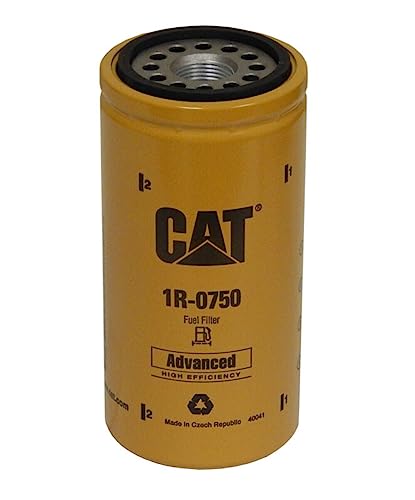
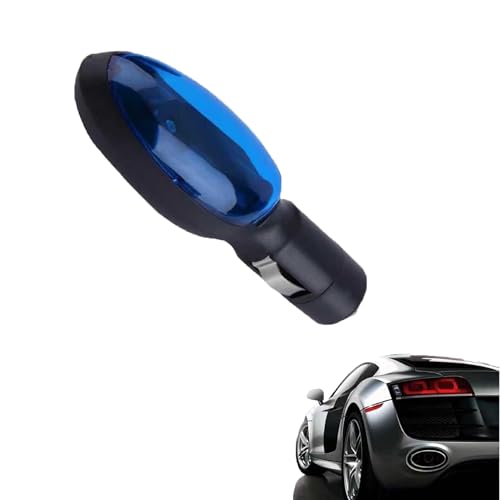
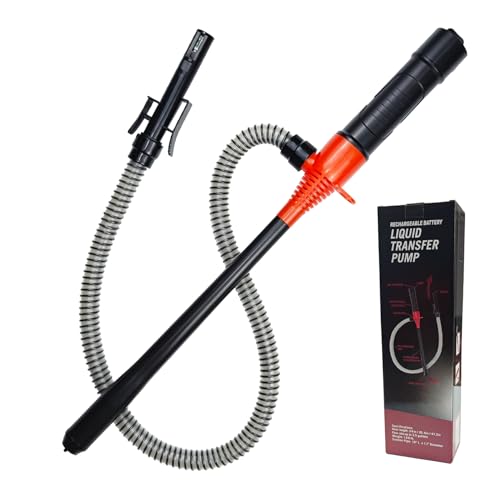

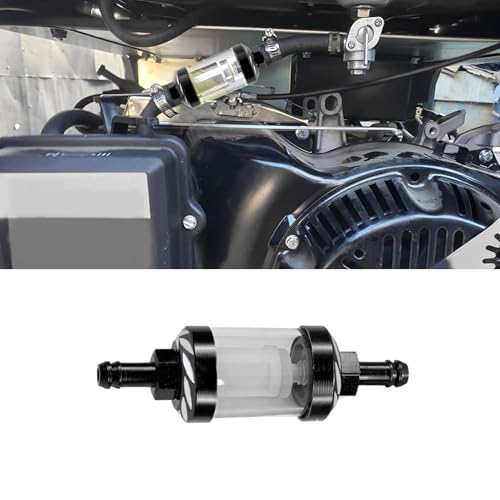
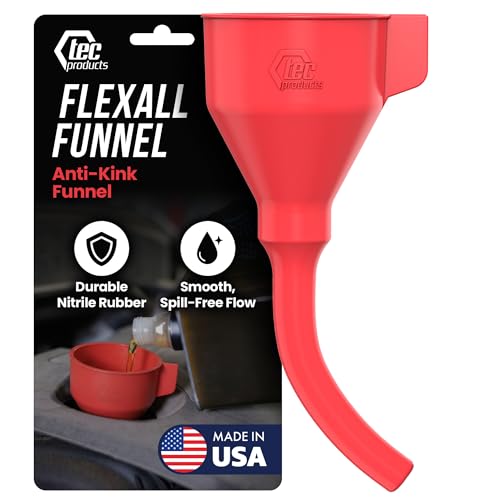

![DooGooCoo Windshield Snow Cover: Honest Review [year] 11 DooGooCoo Windshield Snow Cover: Honest Review [year]](https://i0.wp.com/carxplorer.com/wp-content/uploads/2026/02/DooGooCoo-Windshield-Snow-Cover-Honest-Review-year-1.jpg?resize=60%2C60&ssl=1)


